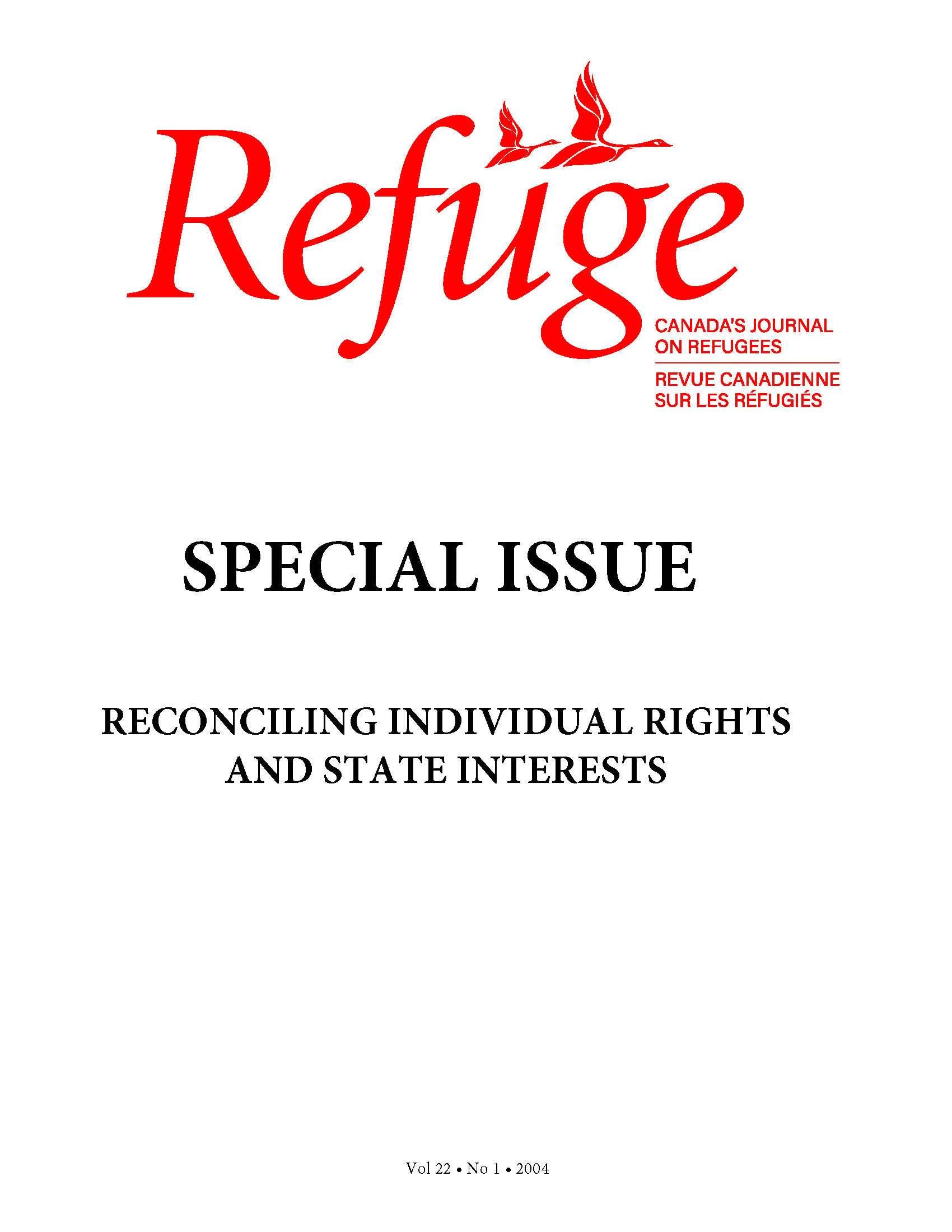A Canadian Perspective on the Subjective Component of the Bipartite Test for “Persecution”: Time for Re-evaluation
DOI:
https://doi.org/10.25071/1920-7336.21322Keywords:
Canada, asylum policy, refugee status determination, persecution, fear, bipartite testAbstract
Canadian decision makers refer so regularly to the bipartite nature of the test for persecution in refugee claims that one rarely gives the matter a second thought. After all, the Supreme Court of Canada in Ward clearly affirmed that a refugee claimant must subjectively fear persecution, and this fear must be well-founded in an objective sense. In this article, the authors focus on the meaning and validity of the subjective aspect of the bipartite test. It is especially appropriate to do so at this time, given the introduction of the term “person in need of protection” in section 97 of the Immigration and Refugee Protection Act, and recent Federal Court decisions holding that the subjective fear is not a requirement in section 97 cases. Looking at the issue of subjective fear from historical, psychological, and legal perspectives, the authors argue: (a) that the drafters of the UN Convention never intended claimants to be “subjectively afraid” in order to qualify for protection; (b) determining an asylum seeker’s state of mind presents a minefield of potential problems for decision makers; and (c) given the new IRPA provisions dealing with persons in need of protection, the question is not whether there is a bipartite test for determining well-founded fear, but whether, indeed, there ought to be such a test.
Metrics
Downloads
Published
How to Cite
Issue
Section
License
Copyright (c) 2004 Michael Bossin, Laila Demirdache

This work is licensed under a Creative Commons Attribution-NonCommercial 4.0 International License.
Refuge authors retain the copyright over their work, and license it to the general public under the Creative Commons Attribution-Non Commercial License International (CC BY-NC 4.0). This license allows for non-commercial use, reproduction and adaption of the material in any medium or format, with proper attribution. For general information on Creative Commons licences, visit the Creative Commons site. For the CC BY-NC 4.0 license, review the human readable summary.







